Film Inquiry Recommends: Movies Made For TV
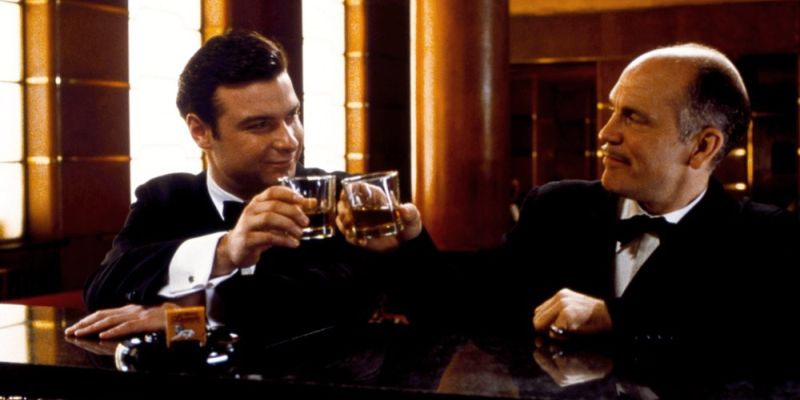
Alex is a 28 year-old West Australian who has a…
Over at our official Facebook page, we are currently posting daily film recommendations, with each week being a different theme. This is a collection of those recommendations! This week’s theme is movies made for TV.
Whilst TV movies have their beginnings during the 1940’s in the form of feature length ‘specials’ (usually for different seasonal holidays), it wasn’t until the 1960’s-70’s that television movies were considered an alternative medium to theatrically presented movies that were in the middle of shifting importance culturally. In an effort to combat the large amount of original programming at the cinemas, combined with the lack of accessible home media equipment to release new films onto, television stations started to create original films themselves, a tradition started by NBC with NBC Saturday Night at the Movies.
David Lowell Rich’s See How They Run is regarded as the first film made for television. Since then, like all artistic mediums, the range and quality have increased over time, with HBO and Netflix shifting the archetypal television movie from cheap programming into genuine feature films that acquire prestigious awards. Notable television movies include Trilogy of Terror, High School Musical, The Night Stalker and Don’t Be Afraid of the Dark, all movies which brought cinematic qualities to the televised format.
1. The Second Civil War (1997, Joe Dante)
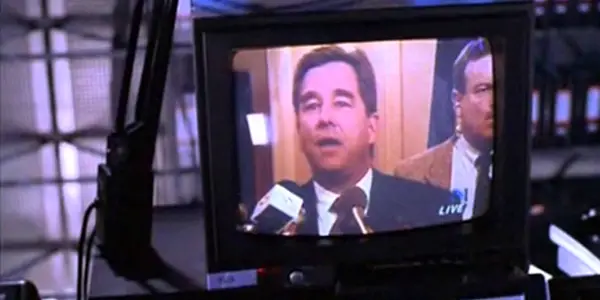
Joe Dante is one of the many graduates of the school of Roger Corman, emerging as one of the more consistently entertaining directors of the past 30 years, making a mix of family-friendly entertainment and macabre genre work which manages to subvert expectations and playfully twist genre tropes. During the 90’s, Dante started to delve into television work, such as Eerie Indiana (a child-friendly version of the X-Files formula) and a string of sci-fi television movies.
Whilst most of these films are hard to track down nowadays, his sharp political satire The Second Civil War has been released on DVD, a rarity for these obscure TV films. Whilst released on TV in America (on HBO), it was released internationally in theatres, where its political issues caused quite a stir for some countries, such as Italy, where the events on-screen mirrored real life at the time.
The story is set in a future United States of America, where the issue of immigration has become a hot topic. When it is announced that orphans from Pakistan will be immigrated into Idaho, the Governor of the State (Beau Bridges) announces that his borders will be closed to all immigrants. This causes quite a stir with the President of the United States (Phil Hartman) and the story shows the unfolding from all angles, from the citizens, government and the news that is reporting the story.
As seen with Donald Trump’s controversial comments during his election campaign, the topic of immigration in America is still a hot topic making this film still relevant today. The Second Civil War boasts an incredibly loaded cast, which features James Coburn, Phil Hartman, Denis Leary, Kevin Dunn, Beau Bridges, James Earl Jones, Ron Perlman, Elizabeth Pena and of course, Dick Miller.
2. RKO 281 (1999, Benjamin Ross)
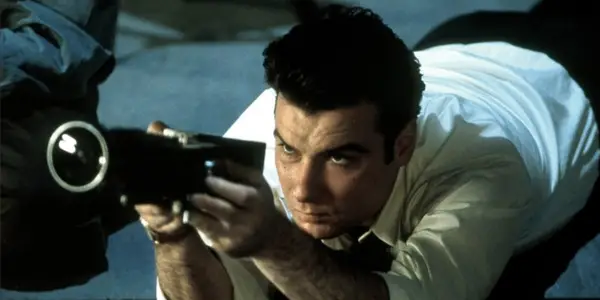
A HBO Television movie chronicling the creation of Orson Welles’ masterpiece Citizen Kane and the relationship between Welles and Randolph Hearst, a billionaire newspaper tycoon, whom the film is based on. Orson Welles (Liev Shrieber, who doesn’t physically look like him, but does a decent voice job), fresh off his success of War of the Worlds, was given a carte blanche by RKO pictures to make whatever film he wanted to.
According to RKO 281, Welles had a poor encounter with Hearst, which lead him to make Citizen Kane as a passive-aggressive insult towards the man. In reality, Hearst was picked in a decision between Welles and co-writer Herman J. Mankiewicz because he was a big American figure who wasn’t a politician. This is an example of how this film frequently skews the facts on what actually happened, falling into the usual trap of adding dramatic elements in order to make the original story more theatrical.
The cast for this film is tremendous, with frequent sci-fi baddie James Cromwell as Randolph Hearst, who adds a vulnerability and sympathetic portrayal of a man who is annoyed that his life story being manipulated by the young Welles. John Malkovich plays Mankiewicz, adding the sardonic wit and likability that made up Mankiewicz’ known persona. Rounding off the great cast is Roy Scheider as George Shaefer and Melanie Griffith as Marion Davies.
Whilst not exactly historically accurate, the film’s decision to show both sides of the story, Hearst’s and Welles’, makes an interesting dynamic, usually unseen in these Hollywood biopics.
3. The Park Is Mine (1986, Steven Hilliard Stern)
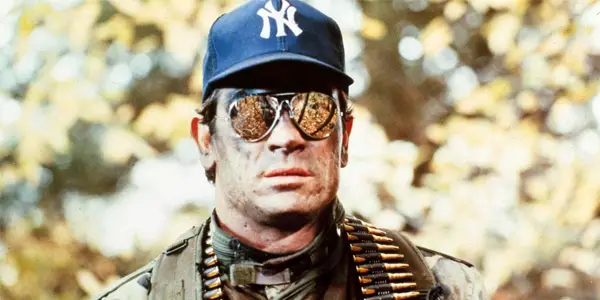
Recently announced for a DVD/Bluray release for the first time ever, Steven Hilliard Stern’s The Park is Mine is a nifty little action film that barely anyone has heard of due to its lack of official release. Heavily riffing on the same thematic and visual ideas of Ted Kotcheff’s first Rambo film First Blood, The Park Is Mine is also an exploration of a Vietnam veteran who fails to adjust to modern society, instead fighting back via the use of extreme violence.
This Canadian film is quite violent for a TV movie, throwing away the idea that all TV films are these clean, safe films without any violent or explicit images. The film is currently best known for its soundtrack that was made by Tangerine Dream, a band who’ve also made unique and characteristic soundtracks for William Friedkin’s Sorcerer and Michael Mann’s Thief, both hugely popular film scores. The Park Is Mine’s other claim to fame is it was one of Tommy Lee Jones’ first starring roles, a performance which highlights all of his acting features that he’s established for himself over his 30+ year career.
Due to it being a television movie, the production values are quite low and the narrative material is quite formulaic. What this film delivers on though is being a solid action film, one with a unique premise and a series of fun action scenes which will satisfy any action film junkie, a grade above the standard straight to DVD films that are pumped out constantly today.
Tommy Lee Jones anchors the entire film, giving a well-constructed performance that highlights a more crazier and impulsive side of the actor that’s rarely seen today, where his delivery now is much more authoritative and stoic. Genre film favourite Yaphett Kotto shows up as well as a pissed off police captain, delivering some much needed energy throughout the film’s slower exposition sections.
4. Dark Night of the Scarecrow (1981, Frank De Felitta)
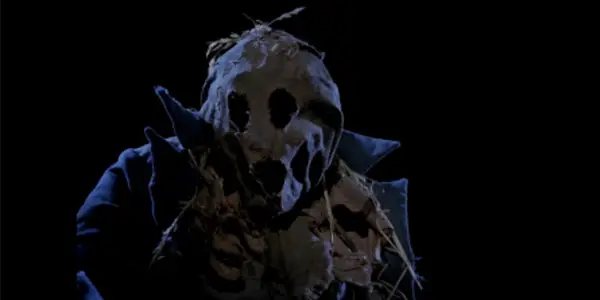
Despite being a television film, Dark Night of the Scarecrow is an atmospheric and well-developed horror film, which balances the line between supernatural stalker film and psychological thriller, keeping the distinction between the two ambiguous. Originally developed as an independent feature before being picked up by CBS, the original television airing of Dark Night of the Scarecrow proved to be quite controversial, with many viewers complaining that the film was too scary for public television.
These complaints earned the film a cult status, where the film lives a healthy life on the home media market. The film is also known for creating the “killer scarecrow” subgenre, despite the film never explicitly showing the scarecrow kill anyone. Films that followed after this include: Scarecrow, Scarecrows and Night of the Scarecrows (really original titles as you can see).
The hinderance of the television movie is a plus and minus for this film, as the film had to be heavily censored to be allowed to air on public television, so any gore/blood could not be shown. What this does tho is make the death scenes much more creative, as the film has to simply imply the gory deaths that are inflicted upon the main characters.
This harks back to the old horror style where the violence the filmmaker doesn’t show you will always be much worse than anything they can film, as it’s all purely to your vivid imagination, a lesson learnt from classic horror films such as The Texas Chainsaw Massacre and Halloween. Dark Night of the Scarecrow is a cool, somewhat underrated horror film that defies the bad reputation of the standard “TV movie”, especially for the 1980’s.
5. The Killers (1964, Don Siegel)
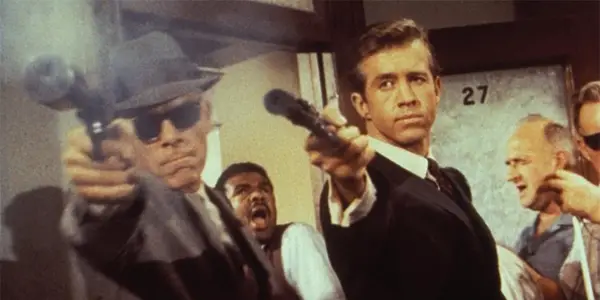
Whilst not perfect, Don Siegel’s original take on The Killers makes it one of the more interesting remakes to come out. The original narrative, based on a short story by Ernest Hemingway, was about two hitmen who assassinate ‘The Swede’ (Burt Lancaster) who willingly accepts his death. A life insurance officer (Edmond O’Brien) starts to investigate the events that lead up to his death, showing The Swede’s tragic slide from normal everyman into failed criminal.
The original is considered a classic in the film noir genre, so when Don Siegel (Famous for directing Dirty Harry and Charley Varrick) had to make a TV movie reboot of the film, he decided to actually do something different with it. In this version, the two assassins still execute The Swede at the beginning, but the investigation into his death is actually done by the two assassins, played by Lee Marvin and Clu Gulager. Due to the Swede’s easy acceptance of death, they start to suspect their job has something fishy behind it.
The cast also features Angie Dickinson, John Cassavettes and Ronald Reagan (who regretted doing the film after his presidency, due to a scene where he slaps a woman). The only problem with the film is due to originally being made for television, the production values are quite low (especially during driving scenes, which are horribly matted), so more money invested would’ve really helped. This was the first film Lee Marvin received top billing in and there’s a lot of elements in his hitman character that would come back in his ‘Walker’ role in Point Blank.
6. Trapped (1973, Frank De Felitta)
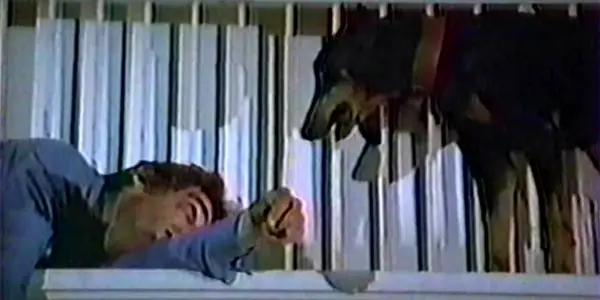
Whilst mainstream audiences are well aware of actor Josh Brolin, some forget that his father James Brolin also had a great acting career, known for his various roles in many well-loved genre pictures. His best known roles include 1979’s The Amityville Horror, 1973’s Westworld and the awesome but underrated action film Night of the Juggler, a film that Taken borrows heavily from. Trapped is one of the many TV movies that Brolin starred in, he did quite a few throughout the 80’s after the success of his TV show Marcus Welby, M.D.
Just before closing time at a large shopping mall, Chuck Brenner (James Brolin) is blindsided and robbed, leaving him unconscious. When he wakes up, he realises he’s been left alone within the huge shopping centre that is now closed. Due to the mall being closed, Brenner’s presence is interpreted by security as being a robber who has broken into the place after hours, thus the mall’s security team unleash a pack of six vicious Doberman guard dogs who attempt to track down and disable the innocent Brenner.
Trapped is a suspenseful and wholly original genre film, bolstered by an entertaining lead performance by Brolin. Whilst he directed several great TV films, Frank De Felitta is best known for his written works, which include Audrey Rose and The Entity, which were both adapted into well-regarded horror films during the late 70’s/80’s.
Trapped has never been released officially, meaning any copy that exists online is either a TV rip or a VHS bootleg, so the film hasn’t been given the proper visual treatment yet. If you’re interested in some original genre work, Trapped is worth checking out (despite the generic title that is used for so many films).
7. A Cold Night’s Death (1973, Jerrold Freedman)
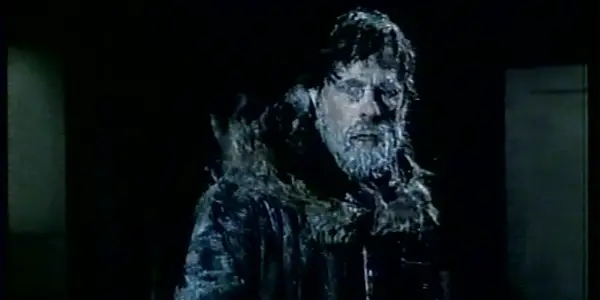
Another great TV movie released in the same year as Trapped, A Cold Night’s Death is a claustrophobic psychological thriller that is seen by many as the precursor to John Carpenter’s iconic remake of The Thing in 1982. An intimate two-hander, A Cold Night’s Death is another obscure TV film that has received no official media release, with a small legacy being kept alive by dodgy bootlegs and VHS rips that are shared online.
As pointed out with the Dark Night of the Scarecrow recommendation, the limitations of television forced filmmakers to be more creative with their filmmaking, causing films to either be incredibly unsatisfying (watered down versions of topical/popular genres of the time) or surprisingly great, films that focused on character/dialogue rather than cheap thrills.
A Cold Night’s Death focuses on scientists Robert Jones (Robert Culp) and Frank Enari (Eli Wallach), who are sent to investigate the Tower Mountain Research Station, an isolated place covered in thick snow. The two scientists are tasked to find out what has happened to Dr. Vogel, the man assigned to run the place, who hasn’t had any communications with anyone in the past five days.
As the men go through the desolate station, the two start to come up with different conclusions and explanation of where the missing Vogel is and why the animal research centre has such an eerie atmosphere. Whilst Enari immediately decides that Vogel simply went insane and ran away, Jones starts to suspect that whatever happened to Vogel, is going to slowly happen to them if they don’t act fast.
What are some other TV movies that you can recommend?
Does content like this matter to you?
Become a Member and support film journalism. Unlock access to all of Film Inquiry`s great articles. Join a community of like-minded readers who are passionate about cinema - get access to our private members Network, give back to independent filmmakers, and more.













